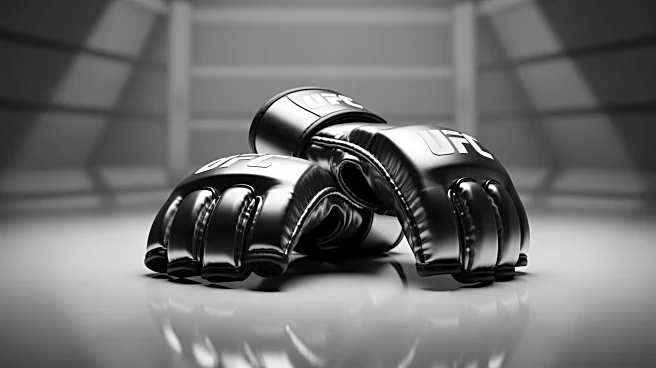What's Happening?
Dustin Poirier, former interim UFC lightweight champion, is grappling with life after retirement following his last fight at UFC 318 against Max Holloway. Despite a heartfelt send-off in his home state of Louisiana, Poirier admits to missing the sport
deeply, describing retirement as a loss of a part of himself. While he remains firm on his decision to retire, he acknowledges the possibility of a comeback under perfect circumstances, though his family prefers he stays retired. Poirier's major regret is ending his career on a loss, without the chance to redeem himself.
Why It's Important?
Poirier's reflections highlight the emotional and psychological challenges athletes face upon retiring, especially after long careers. His potential return could impact the lightweight division, offering fans and competitors a chance to witness his skills again. The narrative of retirement and comeback in sports underscores the personal struggles athletes endure, influencing public perception and the dynamics within competitive sports. Poirier's story resonates with many athletes facing similar transitions, emphasizing the importance of mental health and support systems.
What's Next?
If Poirier decides to return, it could lead to significant matchups in the lightweight division, potentially altering rankings and title contention. His decision will likely depend on personal circumstances and the evolving landscape of UFC. Meanwhile, Poirier's reflections may inspire discussions on athlete retirement, mental health, and the support needed during such transitions. The UFC community and fans will closely watch Poirier's next moves, anticipating any announcements regarding his future in the sport.
Beyond the Headlines
Poirier's story sheds light on the broader cultural and ethical considerations of athlete retirement, including the pressures to return and the impact on personal identity. It raises questions about the support systems available to retired athletes and the societal expectations surrounding their careers. The narrative also highlights the emotional ties athletes have to their sport, influencing their decisions and legacy.

















